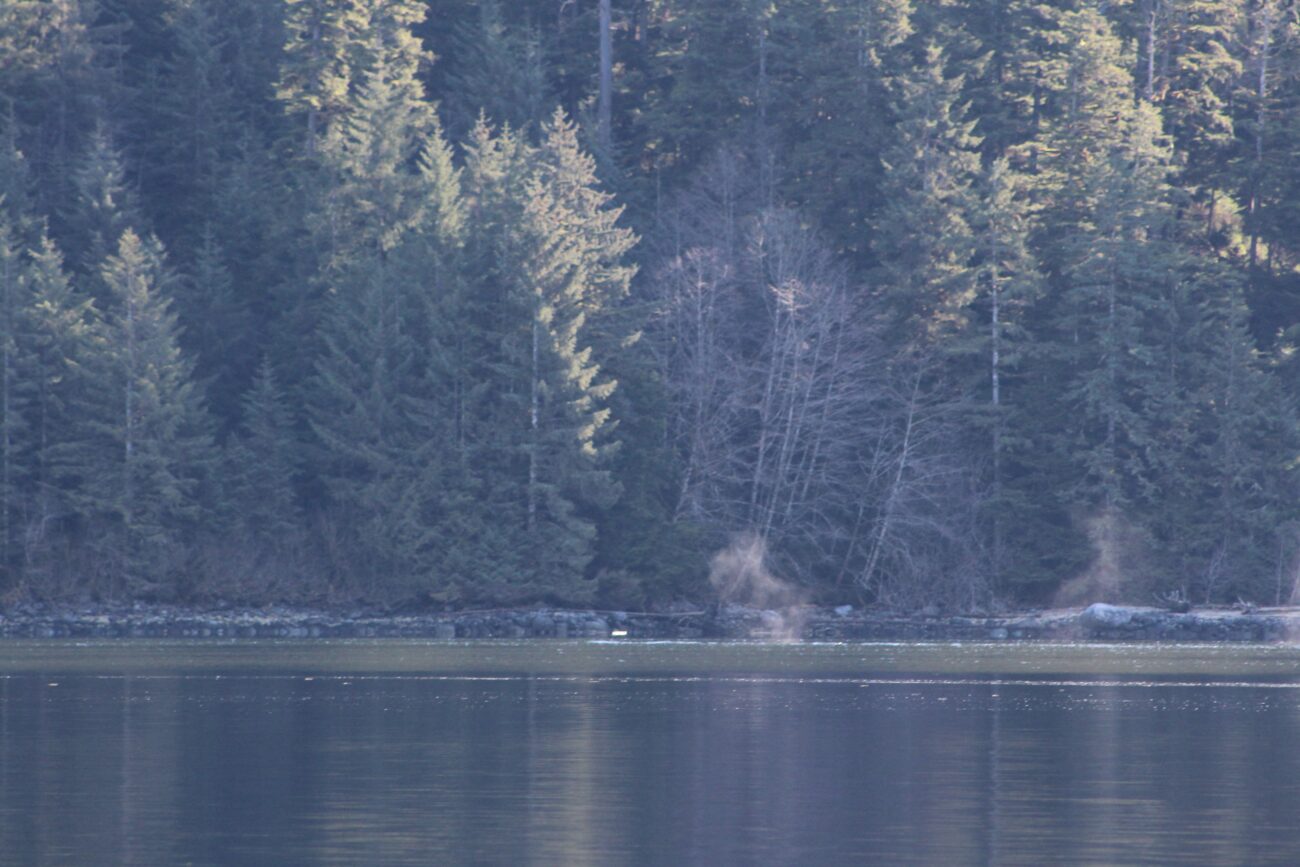
(Sage Smiley / KSTK)
The U.S. Navy says its operations in Southeast Alaska won’t increase over the next seven years. It announced today (October 1) that it will continue training and equipment testing in the Northwest Testing and Training Area — which includes Southeast Alaska — under what it calls its “Preferred Alternative.”
In Southeast Alaska, that mostly consists of measuring the sound signature of submarines at the Southeast Alaska Acoustic Measurement Facility (SEAFAC) in the Behm Canal near Ketchikan.
The Navy says it won’t be testing any weapons in Southeast Alaska waters and only proposes one or two sonar tests per year at SEAFAC.
NOAA Fisheries granted a final permit for the Navy to conduct its training activities last November. The permit authorizes the possible impact the Navy might have on marine life over the next seven years of training and testing. In Alaska, the permit includes permission to behaviorally harass marine mammals more than 16,000 times throughout the next seven years.
Under the Marine Mammal Protection Act, the Navy must submit an environmental impact statement for its Northwest Training and Testing Area. The EIS includes projected impacts to marine life and some mitigation efforts. The Navy released the final supplement to its EIS in September of last year.
The federal agencies tasked with protecting marine mammals then evaluate the EIS and approve a permit for harm. The Navy is not allowed to physically harm or kill any marine mammals in Southeast Alaska over the next seven years, but it is permitted thousands of what it calls behavioral disturbances. That can include disruption to feeding, interactions, or travel from place to place.
The Navy’s calculation of its disturbance to marine mammals and other ocean-dwellers is theoretical. The Navy does not keep track of actual harm done to animals during training exercises, instead using the number of training and testing activities as a tool to estimate marine impacts.
Environmental groups have expressed concern that the Navy does not do enough to mitigate its impact on marine life — from larger marine mammals like whales and porpoises, down to fish populations and zooplankton.
Get in touch with KSTK at news@kstk.org or (907) 874-2345.











